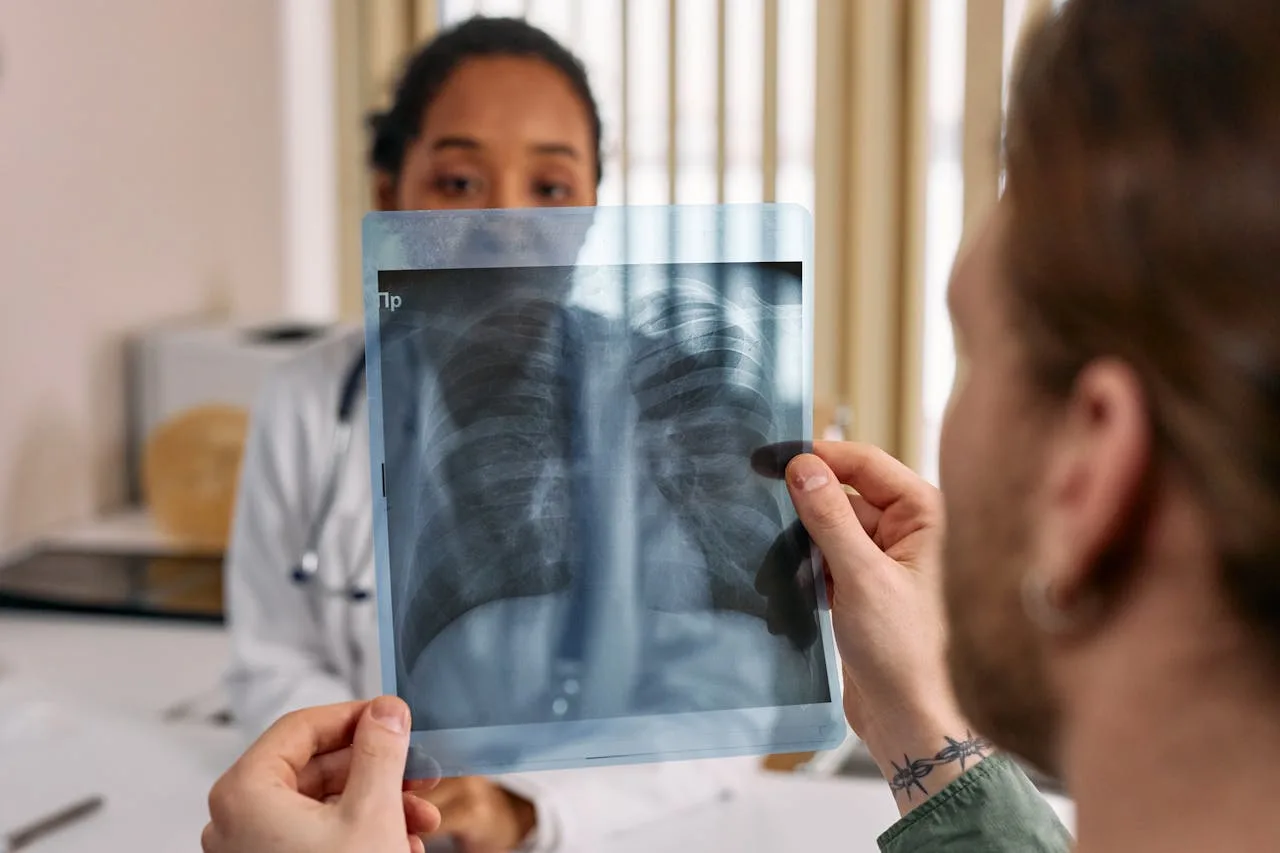bioAffinity Technologies Reports Record Q3 2025 Growth for CyPath® Lung Test
bioAffinity Technologies, Inc. (Nasdaq: BIAF; BIAFW), a biotechnology company advancing noninvasive diagnostics for lung cancer and other lung diseases, announced record sales growth for its flagship diagnostic test, CyPath® Lung, in the third quarter of 2025. The company reported a 95% increase in sales compared to the previous quarter, marking the strongest performance since the test’s commercial launch. This growth was driven by expanding adoption across Veterans’ hospitals and increased market penetration in the mid-Atlantic region.
Over the first nine months of 2025, CyPath® Lung sales rose 97% year-over-year, reflecting growing physician confidence in the test’s clinical accuracy and ease of use.
Growing Adoption and Market Confidence
“The continued acceleration in CyPath® Lung adoption underscores the growing physician confidence in our test to detect lung cancer at its earliest, most treatable stages,” said Maria Zannes, President and CEO of bioAffinity Technologies. “Physicians are equally impressed by CyPath® Lung’s ability to save patients from unnecessary invasive procedures when the nodule is benign.”
Zannes noted that the test’s rising adoption demonstrates strong market traction and broader integration into clinical workflows. “Our quarter-over-quarter growth confirms that CyPath® Lung is gaining recognition as an essential diagnostic tool,” she said. “We’re also seeing major improvements in performance metrics—most notably, a 77% increase in new patient usage and higher compliance rates for at-home sample collection and return.”
Transforming Early Lung Cancer Detection
CyPath® Lung is designed to detect early-stage lung cancer noninvasively by analyzing sputum samples using advanced flow cytometry and proprietary cell analysis techniques. The test identifies cancer-associated changes (CACs) in lung cells, enabling early detection of malignancies that traditional imaging may miss.
Published case studies have reinforced CyPath® Lung’s clinical value by highlighting cases where it successfully:
- Detected Stage 1A lung cancer in patients who had previously been classified as low-risk by other diagnostic methods.
- Spared patients from unnecessary biopsies and surgeries when the test indicated a benign result.
- Detected early cancer in ground-glass nodules, which are often challenging to diagnose accurately using standard imaging or risk-assessment models.
These findings underline CyPath® Lung’s role in bridging critical diagnostic gaps—offering physicians a reliable, data-backed tool to guide next steps in patient management.
Impact on Patients and Physicians
“As we expand our marketing and sales efforts, we are immensely proud of the real-world impact CyPath® Lung is having on patients and their families,” said Dr. Gordon Downie, Chief Medical Officer of bioAffinity Technologies. “Every early cancer detected means a life that may be saved, and every unnecessary invasive procedure avoided means a patient spared from risk, anxiety, and cost.”
Dr. Downie added that this dual benefit—detecting early-stage cancers and reducing unnecessary interventions—has resonated strongly with physicians in both hospital and outpatient settings. “That’s why more physicians are adding CyPath® Lung as an essential component of the diagnostic pathway,” he said.
Expanding Clinical Reach
The test’s adoption within the Veterans Affairs (VA) healthcare system has been a key growth driver for bioAffinity Technologies. VA hospitals, which treat a higher proportion of individuals with a history of smoking or occupational exposure to carcinogens, have become an important early adopter base for CyPath® Lung. The company’s targeted outreach to these facilities has helped accelerate clinical adoption and improve access to noninvasive cancer screening for high-risk populations.
In addition, bioAffinity’s regional expansion in the mid-Atlantic market has resulted in broader commercial availability. The company continues to build relationships with pulmonary specialists, diagnostic laboratories, and health systems to make CyPath® Lung accessible to more clinicians and patients across the United States.
Building Momentum for Broader Use
Zannes emphasized that bioAffinity Technologies is committed to driving awareness among healthcare providers about the clinical and economic advantages of incorporating CyPath® Lung into early diagnostic protocols. “Our goal is to make early, accurate, and noninvasive lung cancer detection the standard of care,” she said.
The company is also leveraging real-world evidence from patient case studies to support payor engagement and reimbursement discussions. By demonstrating that CyPath® Lung can both improve patient outcomes and reduce unnecessary costs associated with invasive procedures, bioAffinity aims to position its technology as a value-based solution in modern pulmonary care.
Looking Ahead
The record-breaking third-quarter performance underscores bioAffinity Technologies’ growing influence in the lung diagnostics market and reflects the growing momentum behind precision, noninvasive testing. The company plans to continue expanding into new regions, enhancing distribution partnerships, and investing in educational initiatives to increase physician awareness and patient access.
“CyPath® Lung is more than just a diagnostic test—it’s a tool that empowers clinicians to make informed, confident decisions for their patients,” said Zannes. “As adoption continues to grow, we believe CyPath® Lung will become an integral part of how lung cancer is detected and managed in its earliest stages.”
With sustained double-digit growth, expanding market reach, and increasing validation from clinical use, bioAffinity Technologies is positioning CyPath® Lung as a next-generation standard for early lung cancer detection—helping physicians intervene sooner, reduce risks, and ultimately save more lives.
About CyPath® Lung
CyPath® Lung uses proprietary advanced flow cytometry and artificial intelligence (AI) to identify cell populations in patient sputum that indicate malignancy. Automated data analysis helps determine if cancer is present or if the patient is cancer-free. CyPath® Lung incorporates a fluorescent porphyrin that is preferentially taken up by cancer and cancer-related cells. Clinical study results demonstrated that CyPath® Lung had 92% sensitivity, 87% specificity and 88% accuracy in detecting lung cancer in patients at high risk for the disease who had small lung nodules less than 20 millimeters. Diagnosing and treating early-stage lung cancer can improve outcomes and increase patient survival. For more information, visit www.cypathlung.com.



